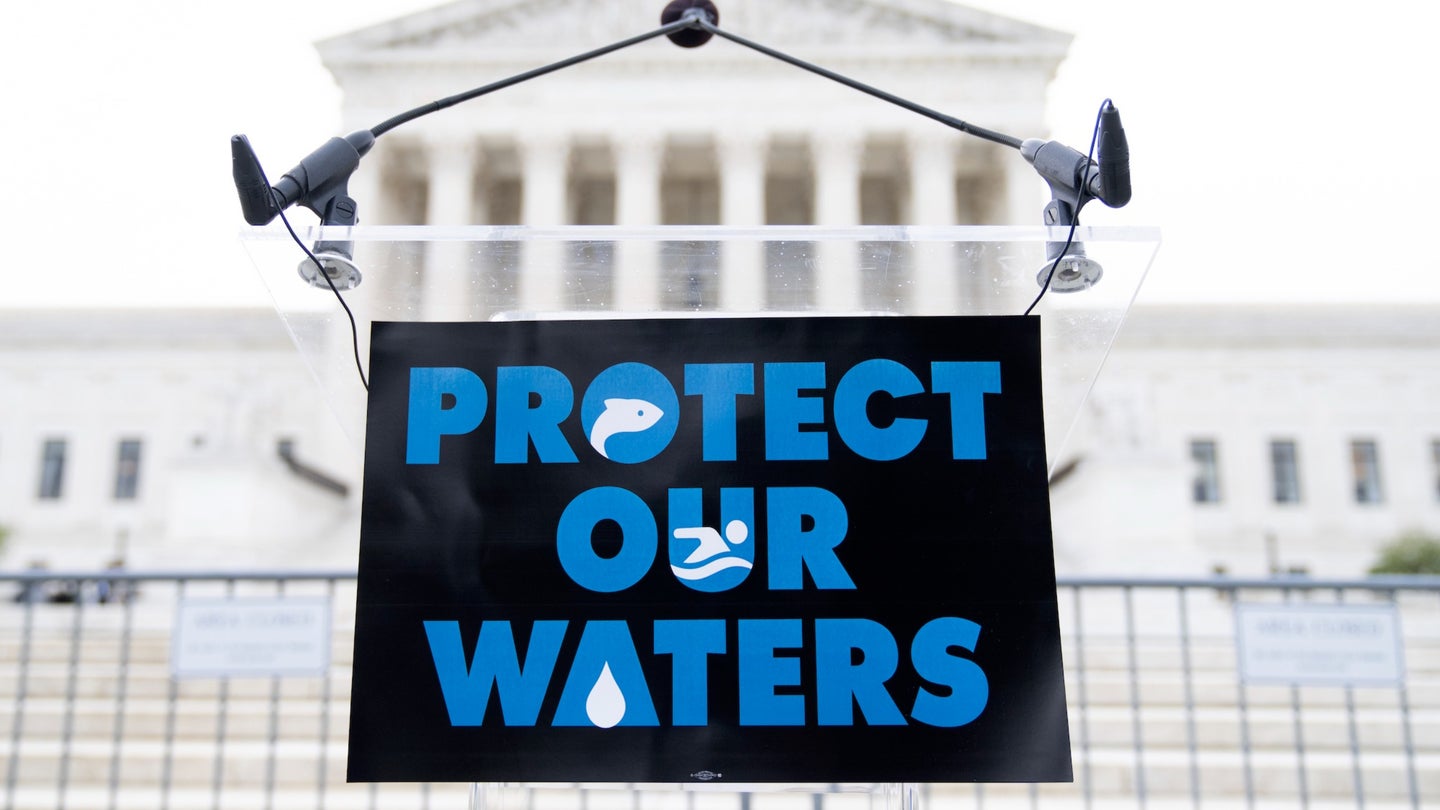Wetlands lose some environmental protections in new Supreme Court ruling
The 5-to-4 decision is a huge setback for the EPA and the Clean Water Act.

On May 25, the Supreme Court of the United States cut back the Environmental Protection Agency’s (EPA) ability to regulate wetlands in another setback for the landmark Clean Water Act. In the 5 to 4 ruling, the court said that the law does not allow the EPA to regulate the discharges into the wetlands that are near a body of water, unless the wetland has a unless they have “a continuous surface connection” to those waters.
[Related: The EPA’s roll back of the Clean Water Act could impact drinking water for millions of Americans.]
The issue before the court was the reach of the 51-year-old Clean Water Act and how courts should determine what counts as “waters of the United States” for the purposes of legal protection. In 2006, the court ruled in two consolidated cases that wetlands are protected by the Clean Water Act if they have a “significant nexus” to regulated waters. Business interests and property rights groups sought to narrow the regulations in wetlands and areas that are directly connected to “navigable waters,” like lakes and rivers.
This case–Sackett v. Environmental Protection Agency–concerned Michael and Chantell Sackett, a couple who wanted to build a home on what an appeals court called “a soggy residential lot” near Priest Lake in Idaho’s panhandle. The Sacketts began construction in 2007 by filling in the land, and the EPA ordered them to stop. The agency threatened the couple with fines, saying they must return their property to its original condition. Backed by successful conservative property rights group Pacific Legal Foundation, the Sacketts sued the EPA. A dispute regarding if the lawsuit was premature reached the Supreme Court in an earlier appeal and the justices ruled that the suit could proceed in 2012. Justice Alito said that the Clean Water Act gave the EPA too much power in a concurring opinion that same year.
Thursday’s 5 to 4 majority opinion is the latest decision in a trend where the conservative-leaning court has narrowed the reach of environmental regulations. In 2022, the court restricted the EPA’s authority to curb emissions from power plants in West Virginia v. Environmental Protection Agency.
Writing for the majority, Justice Samuel Alito said that the EPA’s interpretation of its power went too far. Chief Justice John Roberts and Justices Clarence Thomas, Neil Gorsuch, and Amy Coney Barrett concurred that the Clean Water Act extends only to those “wetlands with a continuous surface connection to bodies that are waters of the United States in their own rights.”
Justices Sonia Sotomayor, Elena Kagan and Ketanji Brown Jackson, and Brett Kavanaugh, dissented, with Kagan writing a concurring opinion. They agreed that the Sacketts should prevail, but wrote that they would have ruled for them on more narrow grounds without changing what defines “waters in the United States.”
[Related: What would America be like without the EPA?]
In his own dissent, Justice Kavanaugh wrote, “By narrowing the [Clean Water] Act’s coverage of wetlands to only adjoining wetlands, the court’s new test will leave some long-regulated adjacent wetlands no longer covered by the Clean Water Act, with significant repercussions for water quality and flood control throughout the United States.”
Wetlands are some of the most diverse and productive ecosystems on the planet and the US has roughly 75.5 million acres of wetlands. They are an important tool against slowing the pace of human-made climate change, particularly in urban areas, while protecting communities from flooding and storms.
Since 1972, the Clean Water Act has dramatically cut pollution in America’s waterways, leading to major rebounds of fish species. Since the wetlands like those at the center of the Sackett case have a close relationship with the larger water system of streams and rivers, the court’s ruling has major potential to impact the health and quality of all waterways in the United States.
“This decision will cause incalculable harm. Communities across the country will pay the price,” Natural Resources Defense Council (NRDC) President & CEO Manish Bapna said in a statement following the ruling. “What’s important now is to repair the damage. The government must enforce the remaining provisions of law that protect the clean water we all rely on for drinking, swimming, fishing, irrigation and more. States should quickly strengthen their own laws. Congress needs to act to restore protections for all our waters.”
Correction (May 30, 2023): Kagan wrote a concurring opinion, not the dissenting opinion as this originally stated. We regret the error.
